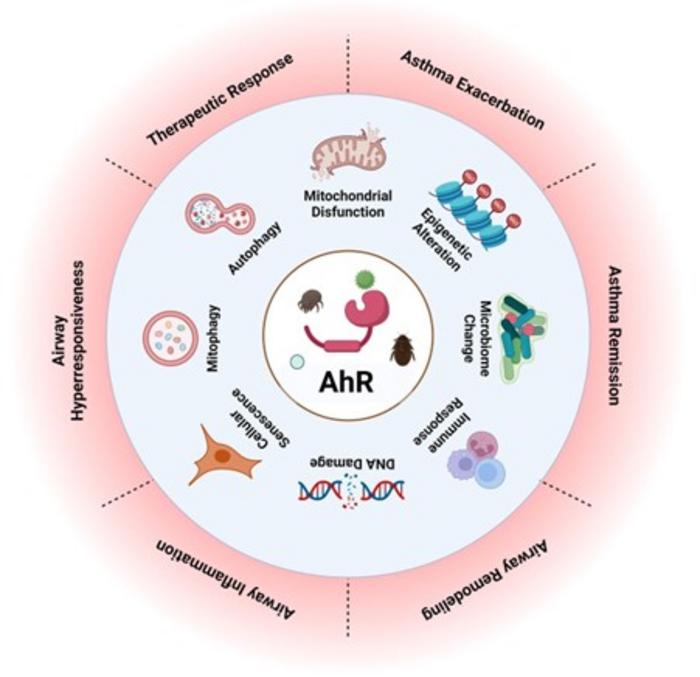Healthcare around the world faces enormous challenges due to the impacts of aging, which affect not just the elderly but also younger people. Aging is the natural outcome of existence. It declines the biological and bodily functions of the organisms, making them more vulnerable to a variety of chronic illnesses. Age-related chronic diseases including arthritis, cancer, diabetes mellitus, stroke, and renal failure affect the health of a person. Therefore, studies targeting the fundamental aging process in older communities are of great importance. This will save countless lives and assist medical professionals in developing better treatments for a range of chronic conditions.

Credit: World Bank Photo Collection on Flickr
URL: https://openverse.org/en-gb/image/d82913d7-f984-4dd1-87c9-fd3ff0ae7f9b?q=asthma%20old
Healthcare around the world faces enormous challenges due to the impacts of aging, which affect not just the elderly but also younger people. Aging is the natural outcome of existence. It declines the biological and bodily functions of the organisms, making them more vulnerable to a variety of chronic illnesses. Age-related chronic diseases including arthritis, cancer, diabetes mellitus, stroke, and renal failure affect the health of a person. Therefore, studies targeting the fundamental aging process in older communities are of great importance. This will save countless lives and assist medical professionals in developing better treatments for a range of chronic conditions.
In this novel review published in Chinese Medical Journal on January 18, 2024, scientists investigated various molecular hallmarks of aging, and how these hallmarks impact asthma treatment. Dr. Peisong Gao from the Division of Allergy and Clinical Immunology, Department of Medicine, Johns Hopkins University School of Medicine, Baltimore, who led the study, states, “Recent advances suggest the role of many new hallmarks of aging, including autophagy, microbiome disturbance, altered mechanical properties, splicing dysregulation, and inflammation. The updated hallmarks of aging may provide a better guide and advanced research on the biology of aging.”
The team reviewed environmental factors like diet, pollutants, and lifestyle along with molecular hallmarks and studied the impact of aryl hydrocarbon receptor (AhR) signaling in the regulation of asthma phenotypes in elderly patients. The aryl hydrocarbon receptor is a cytoplasmic receptor. It is expressed at the barrier of the skin, gastrointestinal tract, and respiratory tract. The transcription of the target gene changes when AhR moves from the cytoplasm to the nucleus in response to ligand interaction.
The researchers focused on different aging hallmarks, including mitochondrial abnormality, cellular senescence, autophagy/mitophagy, genetic/epigenetic alterations, inflammation, and microbiome disturbance, and how the expression of AhR is highly correlated with these aging hallmarks. Dr. Gao further explains, “Mitochondrial abnormalities have been considered a hallmark of environmental injury. Reactive oxygen species (ROS), as a central player in the mediation of environmental exposures, can induce mitochondrial damage, leading to mitochondrial dysfunction and the corresponding aging process”. The team found that AhR signaling is critical in regulating mitochondrial ROS. Aging is one of the causes leading to cellular senescence, the permanent arrest of the cell cycle. AhR-regulated cellular senescence varies from cell to cell depending on environmental conditions. Thus, it can be beneficial as well as detrimental.
Autophagy, responsible for clearing damaged cellular components, maintains cellular stability, while mitophagy specifically targets mitochondria. AhR’s discovered ability to dampen autophagic activities across cell types suggests that inhibiting AhR could uphold autophagy. This suggests AhR’s influence on autophagy/mitophagy might extend to regulating the aging process. Epigenetic changes, heritable modifications affecting cells throughout life, significantly impact mammalian aging. The study’s findings highlight AhR’s pivotal role in responding to environmental and dietary factors associated with aging, influencing epigenetic regulation.
Additionally, age-related alterations in AhR activity could be caused by dysbiosis of the gut microbiota and may speed up the aging process altogether. A microbiome is a community of microorganisms that can exist in a particular part of the body such as the gastrointestinal tract or the skin. “It is observed that gut microbiota can metabolize tryptophan to activate AhR signaling, which participates in varying physiological processes rather than pathophysiological events associated with aging. However, aberrant tryptophan metabolism and dysbiosis of gut microbiota may lead to changes in AhR activity during aging that might contribute to the acceleration of the aging processes,” Dr. Gao notes.
All these aging hallmarks were seen in asthma patients. Utilizing the gene expression omnibus (GEO) database GSE69683, the researchers conducted bioinformatical studies to investigate the association between asthma and biological markers. This bioinformatical analysis provided strong evidence to support the idea that asthma in the elderly population is a distinct phenotype and that aging may have an impact on the pathophysiology of asthma.
The study revealed AhR signaling’s involvement in airway inflammation in asthma, indicating its crucial role in regulating asthma phenotypes, yet prompting the need for further extensive research to explore the interplay between aging, AhR, and asthma. “We believe that with the continuous deepening of aging research in asthma, anti-aging strategies focusing on AhR signaling will offer great promise for the treatment of asthma, particularly for those elderly patients with asthma,” concludes Dr.Gao.
***
Reference
DOI: https://doi.org/10.1097/CM9.0000000000002960
Journal
Chinese Medical Journal
DOI
10.1097/CM9.0000000000002960
Method of Research
Literature review
Subject of Research
Not applicable
Article Publication Date
18-Jan-2024
COI Statement
The authors declare no competing interests.




